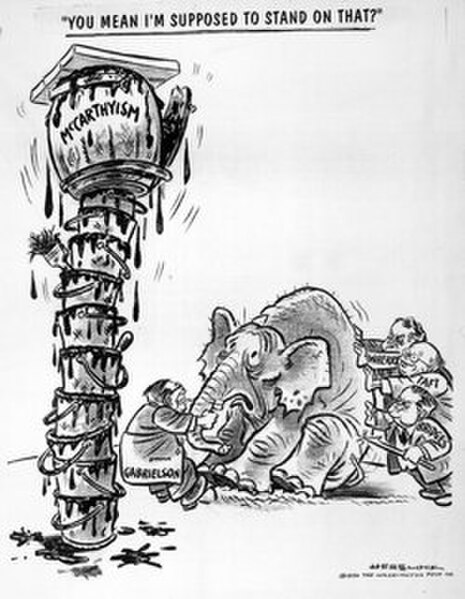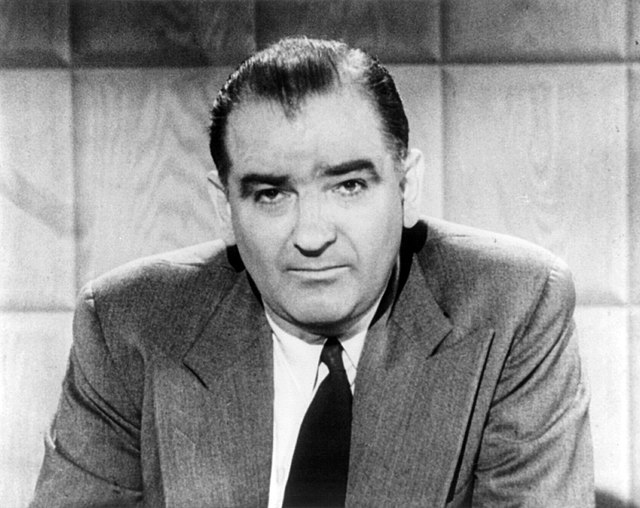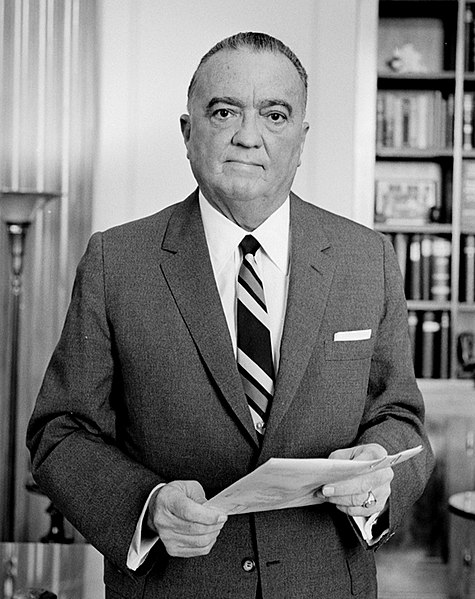Irving Adler was an American author, mathematician, scientist, political activist, and educator. He was the author of 57 books about mathematics, science, and education, and the co-author of 30 more, for both children and adults. His books have been published in 31 countries in 19 different languages. Since his teenaged years, Adler was involved in social and political activities focused on civil rights, civil liberties, and peace, including his role as a plaintiff in the McCarthy-era case Adler vs. Board of Education that bears his name.
Irving Adler at 75
Irving Adler in 1917
Irving and Ruth Adler in 1935
McCarthyism, also known as the Second Red Scare, was the political repression and persecution of left-wing individuals and a campaign spreading fear of alleged communist and Soviet influence on American institutions and of Soviet espionage in the United States during the late 1940s through the 1950s. After the mid-1950s, U.S. Senator Joseph McCarthy, who had spearheaded the campaign, gradually lost his public popularity and credibility after several of his accusations were found to be false. The U.S. Supreme Court under Chief Justice Earl Warren made a series of rulings on civil and political rights that overturned several key laws and legislative directives, and helped bring an end to the Second Red Scare. Historians have suggested since the 1980s that as McCarthy's involvement was less central than that of others, a different and more accurate term should be used instead that more accurately conveys the breadth of the phenomenon, and that the term McCarthyism is, in the modern day, outdated. Ellen Schrecker has suggested that Hooverism, after FBI Head J. Edgar Hoover, is more appropriate.

One of the earliest uses of the term McCarthyism was in a cartoon by Herbert Block ("Herblock"), published in The Washington Post, March 29, 1950.
Senator Joseph McCarthy
Executive Order 9835, signed by President Truman in 1947
J. Edgar Hoover in 1961







